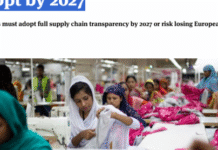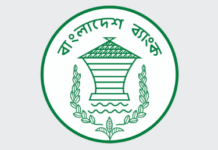Dr Lailufar Yasmin dwelts on how the Middle East is perceived as a unified region, which is not the case in reality in terms of governance and power sharing

The experts were deliberating at a roundtable on “The Changing Dynamics of the Middle East: Implications for Bangladesh,” organized by Dhaka Tribune and BIPSS at a Dhaka hotel Mahmud Hossain Opu/Dhaka Tribune
June 29, 2022
Bangladesh needs to maintain a strategic relationship with Middle Eastern nations as the country is dependent on fossil fuels and foreign remittance, speakers at a roundtable discussion have said.
Despite Bangladesh’s having good relations with Middle Eastern countries, exchanges remain limited to exporting unskilled labour, bringing some investment and small-scale trade, they added.
Fossil fuels have always been a key factor for the Middle East to continue playing its crucial role in global politics. However, being aware of the fact that the era of fossil fuels is coming to an end, many countries in the Middle East have started investing in alternatives, they added.
 Speaker Major General Muniruzzaman Mahmud Hossain Opu/Dhaka Tribune
Speaker Major General Muniruzzaman Mahmud Hossain Opu/Dhaka TribuneThe experts were deliberating at a roundtable on “The Changing Dynamics of the Middle East: Implications for Bangladesh,” organized by the leading English daily Dhaka Tribune and Bangladesh Institute of Peace and Security Studies (BIPSS) at a Dhaka hotel as part of a series of discussions on important national and international issues.
BIPSS President Maj Gen ANM Muniruzzaman and Dhaka Tribune Editor Zafar Sobhan jointly moderated the roundtable that was attended by academia, local and foreign diplomats, former and serving government officials, journalists, and university students.
 Speaker Lailufar Yasmin Mahmud Hossain Opu/Dhaka Tribune
Speaker Lailufar Yasmin Mahmud Hossain Opu/Dhaka TribuneDr Lailufar Yasmin, professor at the department of international relations of Dhaka University, and Parvez Karim Abbasi, assistant professor at the department of economics of East West University, spoke at the event as panellists.
Abbasi presented a comprehensive overview of the importance of the Middle East on the global front, from being a forebear of ancient civilizations to dominating the world as the fulcrum of fossil fuel producers, and the constant political instability in the region initiated by multilateral interested players.
Dr Lailufar Yasmin dwelt on how the Middle East is perceived as a unified region, which is not the case in reality in terms of governance and power sharing. “Any country in the world, they have certain strategic interests and certain tactical interests. Whether we are talking about Saudi Arabia, the UAE or Iran, their primary strategic objective is to ensure sovereignty and territorial integrity.”
 Speaker Zafar Sobhan Mahmud Hossain Opu/Dhaka Tribune
Speaker Zafar Sobhan Mahmud Hossain Opu/Dhaka Tribune Parvez Karim said: “Fossil fuels have always been a key factor for the Middle East to continue playing its crucial role in global politics. However, they are aware that their reign of having leverage over the world with fossil fuels is coming to an end. Countries like Saudi Arabia, Bahrain, and the UAE are heavily investing in alternative industries with an eye to a post-fossil fuel world.”
“Over 60 percent of our expatriates work in the Middle East. Yet as a nation, we have failed to grow a strong influence over them. We have friendly relations with the Middle Eastern nations, but our exchange is limited to exporting unskilled labour, bringing some investment and small scale trade. But for a while, a backlash has been growing among people in the Middle East against these expatriate workers due to their own economic decline. And I fear that our non-skilled labour force will soon be replaced by robots.”
Other than the labour force, Bangladesh is dependent on the Middle East in terms of fossil fuels. Additionally, it is only natural for Bangladesh to be really careful because there is an economic aspect of it. Mentioning the two oil refineries so far in Bangladesh to refine a particular type of crude oil that originates in the Middle East region, Lailufar Yasmin said, “This is a very important area, one where we need to have stronger relations with the Middle Eastern countries. So maintaining strategic relations with the Middle East is extremely important for Bangladesh.”
 Speaker Hytham Ghobashy Mahmud Hossain Opu/Dhaka Tribune
Speaker Hytham Ghobashy Mahmud Hossain Opu/Dhaka Tribune The region is sensitive and important for a number of critical issues, ranging from geo-strategic, geo-economic, geo-energy, and geo-ethnicity, said Maj Gen ANM Muniruzzaman.
“The Middle East has inherited a structure and a geographical identity from its colonial masters that sowed the seeds of discontent, instability and conflict, leaving behind questionable borders. But what is more important today is that there are a number of challenges facing the region, which makes it even more politically unstable at times and changes the power dynamics in the region”, he said.
Concluding the discussion, Dhaka Tribune Editor Zafar Sobhan said apart from economic gains, there is a whole spectrum of social inclusion of returned expatriates which is overlooked.
“As far as it goes for Bangladesh, it’s also important to look into the circumstances of how the millions of expatriate workers are changing the quality of our society when they return from those nations. There is not much study or data on this but surely there is an overall implication of this reintegration into our society,” he said.
The Middle East will continue to remain a crucial player in global politics due to the accumulated reserves of fossil fuel. However, the time of their being the centre of global affairs has shifted in the past decade, he added.
“The Middle East has been the centre of global affairs, including proxy wars, cold wars, and global sanctions. But for the past decade, that attention has shifted towards Asia,” noted the editor of Dhaka Tribune.









